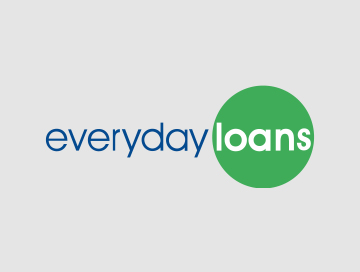The internet is no longer a luxury. Besides providing access to entertainment and making life more convenient, it’s become a basic necessity.
The importance of internet access was highlighted during Covid-19 lockdowns. It was a lifeline for vulnerable people and allowed us to stay in touch with loved ones.
Post-pandemic, many of us continue to rely on the internet to use a range of services. That means you need a broadband connection.
In the midst of a cost-of-living crisis, more and more people are searching for the best broadband deals. As you delve into the world of broadband, though, it can get confusing
This can muddy the waters when you’re searching for the best internet.
In this post we’ll help you find the cheapest deals.
Types of Broadband
Broadband has largely replaced the old, slower dial-up, narrowband system.
The three main types of fixed-line broadband in the UK are ADSL, fibre, and cable.
ADSL Broadband
With ADSL, broadband is delivered through your phone line. The further you are from your telephone exchange, the slower your service. ADSL broadband is the cheapest and most common type of broadband in the UK.
Fibre Broadband
Fibre broadband uses fibre optic cables. It’s faster than ADSL and cable. There are two types of fibre broadband.
● FTTC (fibre to the cabinet) uses fibre optic cables from the main exchange. It then uses copper wires from your streetside phone cabinet.
● FTTP (fibre to the premises) uses only fibre optic cables. It runs directly from the exchange to your home.
Cable Broadband
Cable networks use fibre optic and coaxial cables to deliver broadband. They also provide TV and phone services direct to homes. Unlike ADSL, speeds remain fast over distance. You also don’t need a working phone line. Cable broadband in the UK is mainly provided by Virgin Media. They call it fibre optic broadband.
Which Type of Broadband Do You Need?
Which type of broadband you need will depend on your internet usage. In many cases, ADSL broadband is sufficient if you browse social media, shop online, and occasionally watch YouTube videos.
If you want to stream TV, play online games, download large files, or live in a larger household, a faster fibre or cable connection may be better.
Broadband speeds are measured in megabits per second (Mbps). Bits (binary digits) are tiny units of data. A megabit is a million of them.
The more megabits per second, the faster your broadband will load web pages and complete downloads. Streaming music or video, playing online games, and making video calls will also work better.
Where Are the Best Broadband Deals?
Broadband providers constantly compete for business.
So, it pays to shop around. You’ll probably find in your search for the cheapest broadband that you don’t have to pay more for a faster service. Fibre broadband is often similarly priced to standard broadband.
Major internet service providers popular among people searching for the best broadband deal include:
● Plusnet. Part of BT Group, Plusnet offers some of the lowest prices on the broadband market. It’s also known for industry-leading, award-winning customer service.
● TalkTalk. Salford-based TalkTalk also has a reputation for broadband that’s good value for money.
● Vodafone. London-based Vodafone is one of the world’s largest telecoms operators providing broadband and mobile services.
● Virgin Media. Virgin Media, headquartered in Reading, is the only broadband cable provider serving the UK mainland.
When we looked for the most affordable deals from these providers in August 2023, this is what we found.
Plusnet
Plusnet was charging from £26.99 a month for full-fibre broadband .
TalkTalk
TalkTalk’s cheapest prices included basic broadband at £26.95 a month and fibre broadband for £28 a month
Vodafone
You could get Vodafone Fibre 1 broadband for £24 a month.
Virgin Media
The lowest-priced Virgin Media fibre broadband offer we found was £26.50 a month.
How to Find the Best Broadband Deal When Your Contract Ends
When you get broadband for the first time from an internet service provider, you agree to a minimum contract period, usually 12, 18 or 24 months.
When the contract expires, prices may shoot up. According to communications regulator Ofcom, out-of-contract customers pay an average of 20 per cent more for their broadband.
Your current broadband provider is required to tell you when your contract is coming to an end. They’re also obliged to tell you the best prices they can offer you with a new deal.
avoiding going out-of-contract could save more than £100 a year.
Why We Need Broadband
Many of us would be lost without our broadband. It makes life a lot easier to keep in touch with family and friends, find information, manage money and find entertainment.
However, trying to find the best broadband deal can be confusing. This is especially true if you aren’t tech savvy. We hope this guide has cleared up some of that confusion and helped you look for the cheapest broadband deal.




